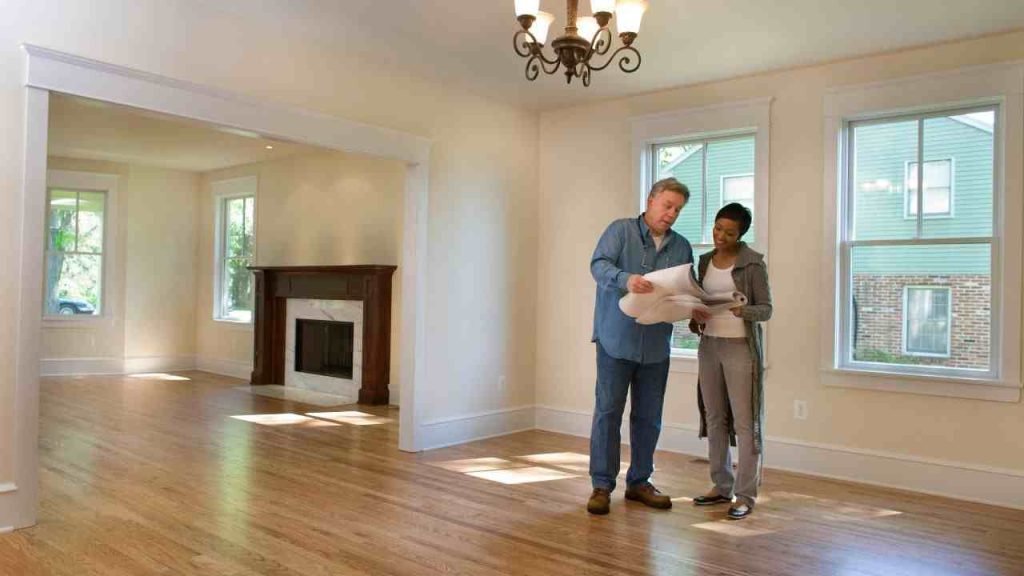When planning a home renovation or construction project in Edgewater, MD, understanding the costs involved is crucial. However, many homeowners are often surprised by hidden costs that can arise during the process. Whether it’s unexpected material price increases, unforeseen structural issues, or additional fees for permits and inspections, these extra expenses can quickly add up. In this guide, we’ll explore the common hidden costs in general contracting services in Edgewater along with the help of Ace Plumbing and Home Services, helping you to budget more accurately and avoid any unwelcome surprises.

Navigating these potential pitfalls requires a keen eye and thorough planning. By being informed and prepared, you can ensure your project stays on track and within your financial expectations. We’ll also provide tips on how to communicate effectively with your general contracting services and what questions to ask upfront. This way, you can confidently manage your renovation or construction project without unnecessary stress.
Understanding Common Hidden Costs
Hidden costs in general contracting services can catch homeowners off guard. These can include unexpected material costs, labor overruns, and additional fees for permits and inspections. To avoid these surprises, it’s essential to understand what can potentially arise during your project. Communicate clearly with your contractor about what is included in your initial estimate and what might come up as extra expenses. Being aware of these possibilities and setting aside a contingency budget can help you manage your project more effectively and reduce stress. Remember, many general contractors provide free estimates, so take advantage of this to get a clearer picture of your project’s potential costs.
Material Price Increases
Material prices can fluctuate due to market conditions, availability, and seasonal factors. These increases can significantly impact your project’s budget. It’s not uncommon for the cost of lumber, steel, or other essential materials to rise unexpectedly. To mitigate this risk, discuss price volatility with your contractor and consider locking in prices for materials early on. Additionally, ask your contractor if they have preferred suppliers who might offer more stable pricing or discounts. When hiring a general contractor, red flags to look out for include vague or evasive responses regarding material costs and a reluctance to discuss pricing transparency or provide detailed estimates.
Unforeseen Structural Issues
During renovations or new construction, unforeseen structural issues can arise, such as hidden rot, foundation problems, or outdated wiring. These issues often become apparent only after work has begun, leading to additional costs. Conducting a thorough inspection before starting your project can help identify potential problems. Ensure that your contractor has included a clause in the contract to handle such contingencies, so you’re not caught off guard. Key considerations when hiring a professional general contractor include evaluating their experience with similar projects, checking references, and ensuring they have proper licensing and insurance.
Permit and Inspection Fees
Obtaining the necessary permits and passing inspections are critical steps in any construction project. However, these can also add unexpected costs. Permit fees vary based on the project’s scope and local regulations in Edgewater, MD. Additionally, if an inspection fails, you might incur re-inspection fees. To avoid surprises, discuss all potential permit and inspection costs with your contractor upfront and ensure they are accounted for in your budget.

Change Orders and Scope Creep
Change orders and scope creep occur when the project’s original plan changes, leading to additional costs. This can happen due to design modifications, unexpected issues, or homeowner requests. It’s important to define the project scope clearly from the outset and stick to it as closely as possible. If changes are necessary, request a detailed cost estimate for each change order to understand its impact on your overall budget.
Labor Overruns and Overtime
Labor costs can quickly escalate if the project takes longer than anticipated or requires overtime work. Delays can be caused by weather, supply issues, or unforeseen complications. To manage labor costs, ensure your contract includes a clear timeline and defines what constitutes overtime. Regularly check in with your contractor on the project’s progress to identify potential delays early and address them promptly.
Utility Connection and Upgrade Costs
Connecting to utilities or upgrading existing services can be a hidden expense in construction projects. This includes costs for plumbing, electrical, gas, and HVAC systems. If your project involves significant changes to these systems, discuss potential costs with your contractor in advance. Upgrades to meet current building codes or increased capacity can also add to your expenses, so ensure these are factored into your budget.
Site Preparation and Cleanup
Site preparation and cleanup are often overlooked costs in construction projects. Preparing the site may involve tree removal, grading, or demolishing existing structures, all of which add to the project’s cost. Similarly, post-construction cleanup, including debris removal and site restoration, can incur additional fees. Discuss these aspects with your contractor to ensure they are included in your initial estimate or contract.
Temporary Living Expenses
If your construction project requires you to vacate your home temporarily, you may incur additional living expenses. These can include costs for renting temporary housing, storage for your belongings, and increased transportation expenses. Plan for these potential costs by budgeting for temporary living arrangements in advance. Discuss the project timeline with your contractor to minimize the duration of any displacement.
Financing and Interest Charges
Financing your construction project through loans or credit can lead to hidden costs in the form of interest charges and fees. Understanding the terms of your financing agreement is crucial. Calculate the total cost of financing, including interest, and factor this into your overall budget. Shop around for the best financing options and consider consulting a financial advisor to manage these expenses effectively.
Tips for Effective Contractor Communication
Effective communication with your contractor is key to avoiding hidden costs. Establish clear lines of communication from the beginning and maintain regular check-ins throughout the project. Ask detailed questions about the estimate, scope of work, and potential additional costs. Keep a written record of all agreements and changes. By fostering a transparent and collaborative relationship with your contractor, you can minimize misunderstandings and manage your project’s budget more effectively.
Conclusion
In conclusion, managing hidden costs in general contracting services in Edgewater, MD, requires thorough planning, clear communication, and proactive measures. By understanding potential hidden expenses such as material price increases, unforeseen structural issues, permit fees, and labor overruns, homeowners can better prepare and budget for their projects. Regularly consulting with your contractor, defining the project scope clearly, and anticipating costs for site preparation, utility upgrades, and temporary living arrangements are essential steps. Additionally, securing favorable financing terms and maintaining open communication throughout the project can help minimize surprises. By being informed and vigilant, you can ensure your construction or renovation project stays on track and within your financial expectations, ultimately leading to a successful and stress-free experience.
FAQs
What are common hidden costs in general contracting services? Common hidden costs include material price increases, unforeseen structural issues, permit and inspection fees, and labor overruns.
2. How can I avoid unexpected material price increases? Discuss price volatility with your contractor and consider locking in material prices early to avoid unexpected increases.
3. What should I do if unforeseen structural issues arise? Conduct a thorough inspection before starting the project and ensure your contract includes a contingency plan for handling unexpected issues.
4. How can I manage permit and inspection fees? Discuss all potential permit and inspection costs with your contractor upfront and include them in your budget to avoid surprises.
5. What are effective ways to communicate with my contractor? Establish clear lines of communication, maintain regular check-ins, ask detailed questions, and keep a written record of all agreements and changes.
